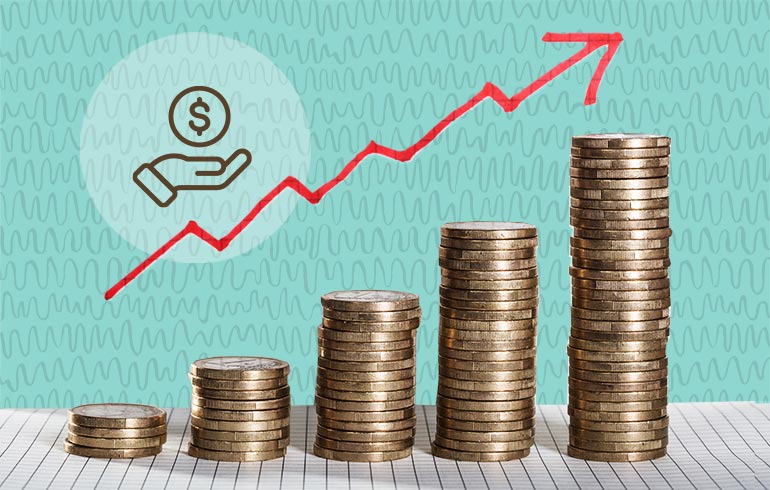Kenya’s economic trajectory is showing significant improvement, driven by strategic government policies and a favorable global economic environment. Prime Cabinet Secretary Musalia Mudavadi recently reported that the country’s economic growth rose from 4.8% in 2022 to 5.2% in 2023. Projections indicate even stronger growth in 2024, demonstrating a positive shift in economic stability and resilience. The government remains optimistic that these upward trends will lead to a more prosperous and self-sustaining economy.
A major highlight of Kenya’s economic progress has been the remarkable drop in inflation. In September 2022, inflation stood at a worrying 9.2%, squeezing household incomes and increasing the cost of living. However, by February 2025, inflation had significantly declined to 3.5%, marking a major milestone in economic stabilization. This decline is attributed to stringent monetary policies, improved food production, and a stable currency, which collectively reduced pressure on consumer prices.
Mudavadi emphasized that the government’s mid-term review played a crucial role in reassessing economic strategies to enhance service delivery and promote sustainable growth. Key indicators such as the exchange rate, interest rates, and credit accessibility have shown positive trends, allowing businesses and households to plan their financial futures with greater certainty. The reduced inflation rate has not only improved the purchasing power of citizens but has also contributed to economic expansion by boosting investor confidence.
One of the government’s primary objectives is to reduce Kenya’s dependence on external financial assistance. The Prime Cabinet Secretary noted that the country must adopt innovative strategies to finance internal budgetary requirements. The decision to terminate Kenya’s multi-year program with the International Monetary Fund (IMF) and forgo Ksh.110 billion ($853.5 million) in budgetary support highlights a commitment to self-reliance. To counterbalance this, the government is exploring new revenue streams and tightening expenditure controls to ensure fiscal sustainability.
Prudent financial management is now at the core of the government’s economic transformation agenda. Mudavadi stressed the importance of tackling corruption, which remains a major impediment to economic progress. To address this, Kenya has invited the IMF to conduct a Governance Diagnostic Assessment, identifying weaknesses and vulnerabilities in critical state functions. This initiative aims to improve transparency, accountability, and economic efficiency by sealing loopholes that lead to financial mismanagement.

In addition to inflation control, economic growth has been supported by structural reforms in key sectors, including agriculture, manufacturing, and technology. The government’s Bottom-Up Economic Transformation Agenda (BETA) has prioritized investments in these sectors to create jobs, enhance productivity, and improve livelihoods. Agriculture, in particular, has benefited from modernized irrigation systems and subsidized farm inputs, leading to increased food security and reduced reliance on imports.
The government’s efforts to strengthen the healthcare sector have also contributed to economic stability. Universal Health Coverage (UHC) remains a top priority, with over 20.6 million Kenyans already registered under the Social Health Authority (SHA). Addressing historical debts in the National Health Insurance Fund (NHIF) and ensuring that more Kenyans access quality healthcare will reduce out-of-pocket expenses, allowing households to allocate their finances more efficiently.
Kenya’s Affordable Housing Program is another pillar of economic growth, providing employment and business opportunities. With over 95,000 housing units launched across the country, the initiative has created approximately 200,000 jobs, directly and indirectly benefiting the construction and small-scale business sectors. The government’s commitment to building 250,000 affordable houses annually is expected to drive further economic growth, reduce urban congestion, and promote equitable development across regions.
As the country continues on this growth trajectory, the government remains committed to long-term economic sustainability. Key priorities include infrastructure development, digital transformation, and energy sector advancements, all aimed at making Kenya a globally competitive economy. Strategic partnerships with private investors and international stakeholders will further strengthen the country’s economic foundation.
Mudavadi’s remarks at the National Development Implementation Committee (NDIC) meeting underscored the importance of maintaining momentum in economic reforms. The government acknowledges the expectations of Kenyans and remains determined to deliver on its promises. As economic policies take shape, Kenya’s future looks promising, characterized by stable growth, reduced inflation, and enhanced prosperity for its citizens.










